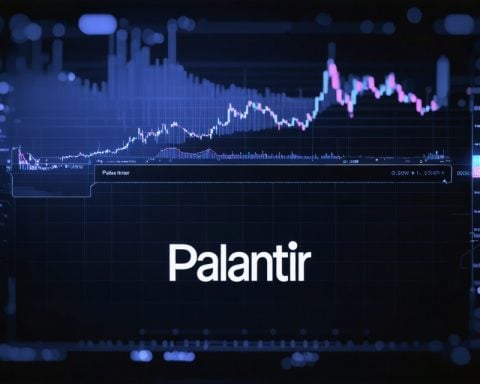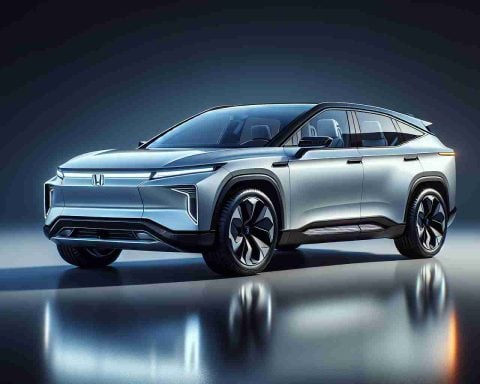Tesla’s stock has emerged as a focal point for investors as critical developments loom. While long-term ownership of Tesla shares has generally proven rewarding, recent fluctuations in its value underline the importance of timing for potential investors.
In 2024, Tesla’s shares saw a rocky start, declining 2.3% between January 1 and November 4, trailing behind the S&P 500 significantly. At one point during this timeframe, the stock plummeted by 42.8%. However, following Donald Trump’s presidential election victory on November 5, Tesla experienced a resurgence, with shares soaring 66.3% until the year’s end, briefly reinstating its place in the trillion-dollar market cap club.
Despite this bullish momentum, signs of weakness emerged late in the year, as Tesla’s stock fell 14.3% since Christmas Eve amid profit-taking and disappointing quarterly delivery figures. As the company missed Wall Street’s production expectations, market sentiment shifted.
The upcoming inauguration of Donald Trump on January 20 could influence Tesla’s performance. Given CEO Elon Musk’s rapport with Trump, some analysts anticipate a potential uptick in stock value, amid hopes for a more favourable regulatory climate for the company’s autonomous vehicle initiatives. However, it is crucial to note that these anticipated changes stem from investor sentiment rather than tangible shifts in Tesla’s fundamentals.
Investors eyeing Tesla now need to weigh their belief in the company’s long-term goals in AI and autonomous driving against the inherent risks of trading momentum stocks. Those with low risk tolerance may want to reconsider their strategy as the market contemplates the implications of the approaching inauguration.
Shifting Dynamics: Tesla’s Role in the Future of Sustainable Transportation
Tesla’s stock performance reflects not just the company’s fortunes, but also broader societal and economic trends that could shape the future of sustainable transportation. As one of the most recognisable brands in electric vehicles (EVs), Tesla is at the intersection of technological innovation and environmental consciousness. The fluctuating stock market around Tesla can influence public perception and investment in sustainable technologies, impacting the global shift towards greener alternatives.
The rise and fall of Tesla’s stock, particularly its recent volatility, can mirror the larger dynamics at play in the EV market. As investors ebb and flow with market sentiment, the potential for innovative breakthroughs in artificial intelligence and autonomous driving technology grows. Such advancements could revolutionise mobility, drastically reducing carbon footprints and redefining urban transportation systems. Conversely, uncertainty in stock performance may inhibit long-term investments necessary for the growth of such technologies, creating ripple effects throughout the automotive industry as companies weigh the risks versus rewards of joining the EV movement.
The environmental implications of Tesla’s market fluctuations are profound. The urgency of climate change demands a rapid transition from fossil fuels to renewable energy solutions. As Tesla continues to innovate, the company holds the potential to lead a global charge towards sustainable transport, encouraging traditional automakers to accelerate their own electrification efforts. This competitive pressure could yield substantial environmental benefits, but the overall market environment must support these pioneering shifts to ensure that such visions become reality.
Future trends indicate that electric vehicle adoption will not only continue to rise but also evolve with technological advancements. Analysts predict significant market growth fuelled by enhanced battery technologies and improved charging infrastructure. Thus, investor sentiment toward companies like Tesla can significantly influence the pace of these changes, creating a feedback loop that either propels or stifles progress in the sector. The ability of investors to look beyond momentary fluctuations and align with long-term sustainability goals will be critical in shaping a more ecological future for transportation worldwide.
Ultimately, the significance of Tesla’s stock is not purely financial; it encapsulates a pivotal moment in the intersection of environment, technology, and finance. As society grapples with the implications of investor choices in the face of climate challenges, the trajectory of Tesla—and its subsequent ripple effect on the market—may serve as a benchmark for the future of sustainable economic models.
Understanding Tesla’s Market Dynamics: Insights for Investors
Tesla’s stock is a topic of significant interest, especially as we venture into 2024, which is poised to be a pivotal year for the electric vehicle manufacturer. Investors keen on navigating the complexities of Tesla’s performance can benefit from a deeper understanding of the factors at play. This article will cover FAQs, how-tos, pros and cons, and predictions that may provide valuable insights for making informed investment decisions.
FAQs About Tesla’s Stock Performance
Q: What factors influence Tesla’s stock price?
A: Tesla’s stock price is influenced by several factors, including production and delivery numbers, regulatory news, market sentiment, and economic indicators. Additionally, announcements regarding technological advancements, notably in AI and autonomous driving, can impact investor confidence.
Q: How does political climate affect Tesla?
A: Political developments, especially in relation to regulatory changes in the automotive and technology sectors, can significantly impact Tesla. CEO Elon Musk’s relationship with political figures like Donald Trump may create expectations for favourable legislation impacting Tesla’s operations.
How to Approach Investing in Tesla Stock
1. Do Your Research: Stay updated on Tesla’s quarterly earnings, production forecasts, and market trends.
2. Consider Your Risk Tolerance: If you are risk-averse, you may want to adopt a longer-term strategy instead of engaging in short-term trading based on price fluctuations.
3. Watch for Technological Developments: Keep an eye on Tesla’s developments in AI and autonomous driving. Innovations can drive stock appreciation significantly.
Pros and Cons of Investing in Tesla
Pros:
– Growth Potential: Tesla operates in a rapidly growing sector that emphasises sustainability and innovation.
– First-Mover Advantage: As a leader in the electric vehicle market, Tesla has established a strong brand and customer loyalty.
Cons:
– Volatile Stock Price: As evidenced in 2024, Tesla’s stock can experience dramatic fluctuations, leading to increased risk for investors.
– Production Challenges: Missing production targets can lead to negative market reactions, highlighting volatility.
Potential Controversies and Predictions for Tesla
The upcoming political landscape may introduce controversies regarding regulatory frameworks affecting electric vehicles. While an administration supportive of innovative technologies may boost investor sentiment towards Tesla, any backlash against large tech companies could negatively impact the stock.
As we look ahead, some analysts predict that Tesla’s stock could regain upward momentum driven by advancements in AI technologies and autonomous driving capabilities. If these developments align with favourable regulatory changes, Tesla might experience substantial growth throughout 2024.
Investors should consider these varied dynamics alongside their specific investment strategies to navigate Tesla’s volatile yet potentially rewarding stock environment. By staying informed and adaptable, investors can position themselves to capitalise on the evolving market landscape surrounding Tesla.
For more in-depth insights into investing strategies, consider visiting Investopedia.
















